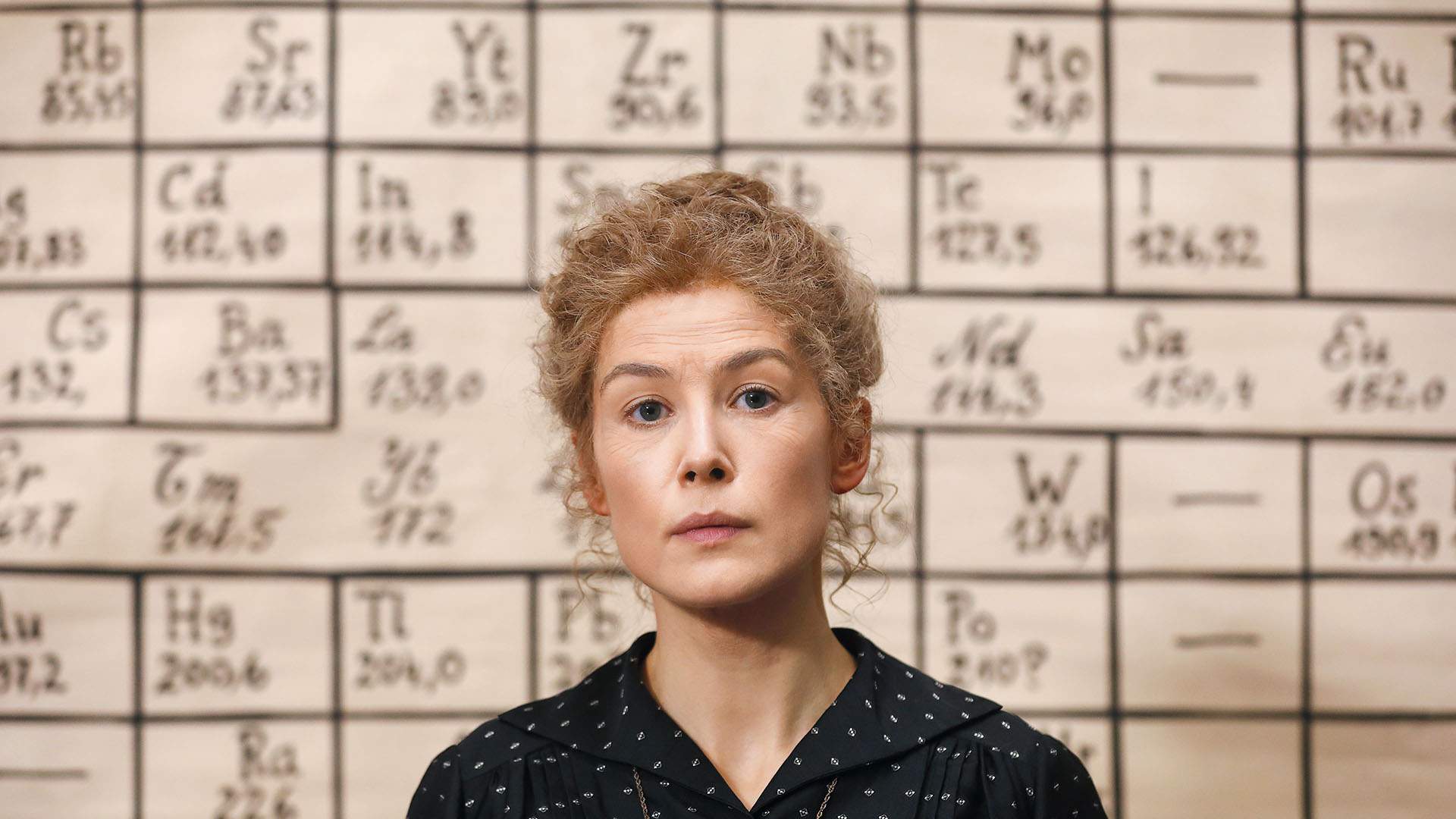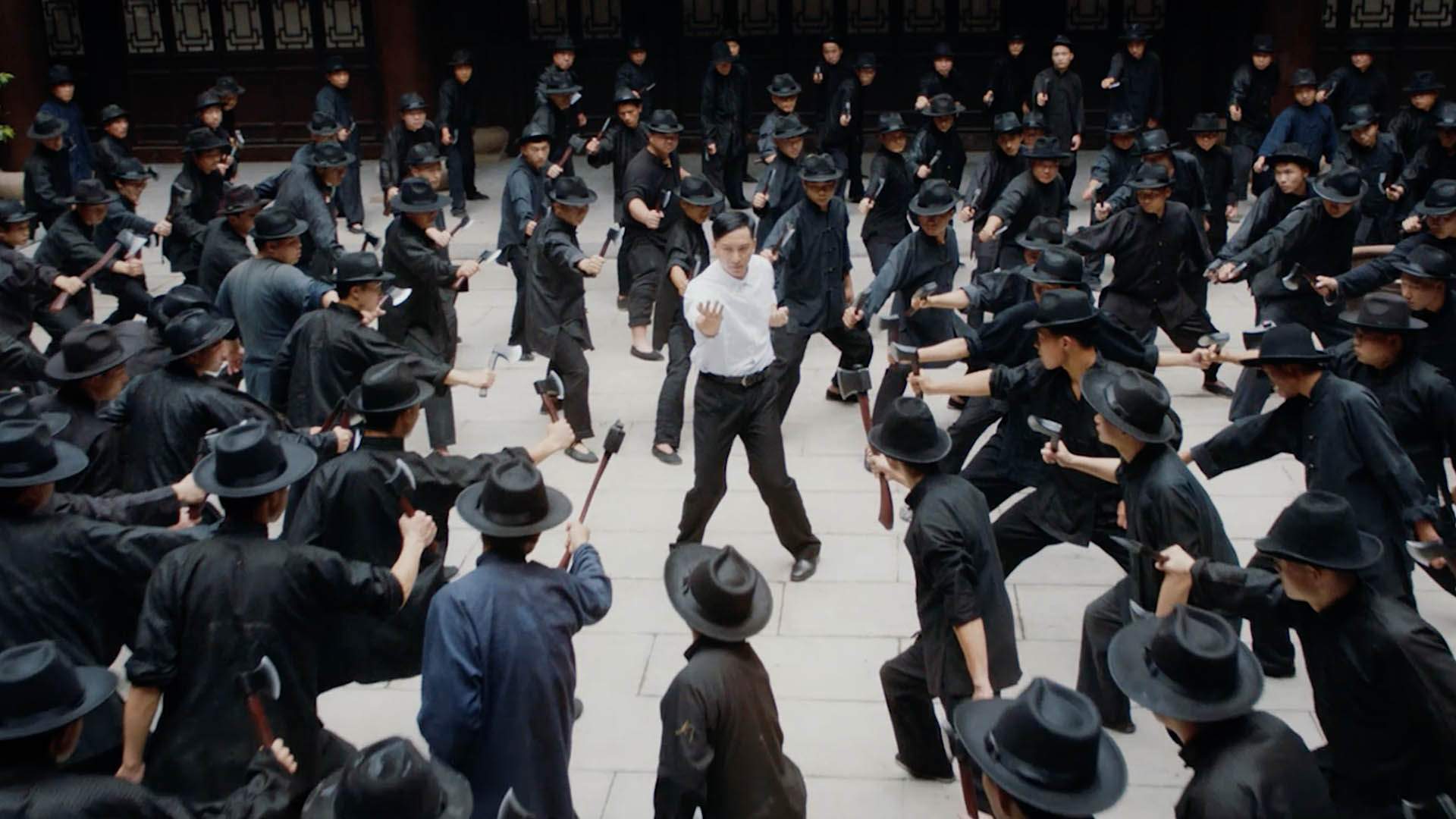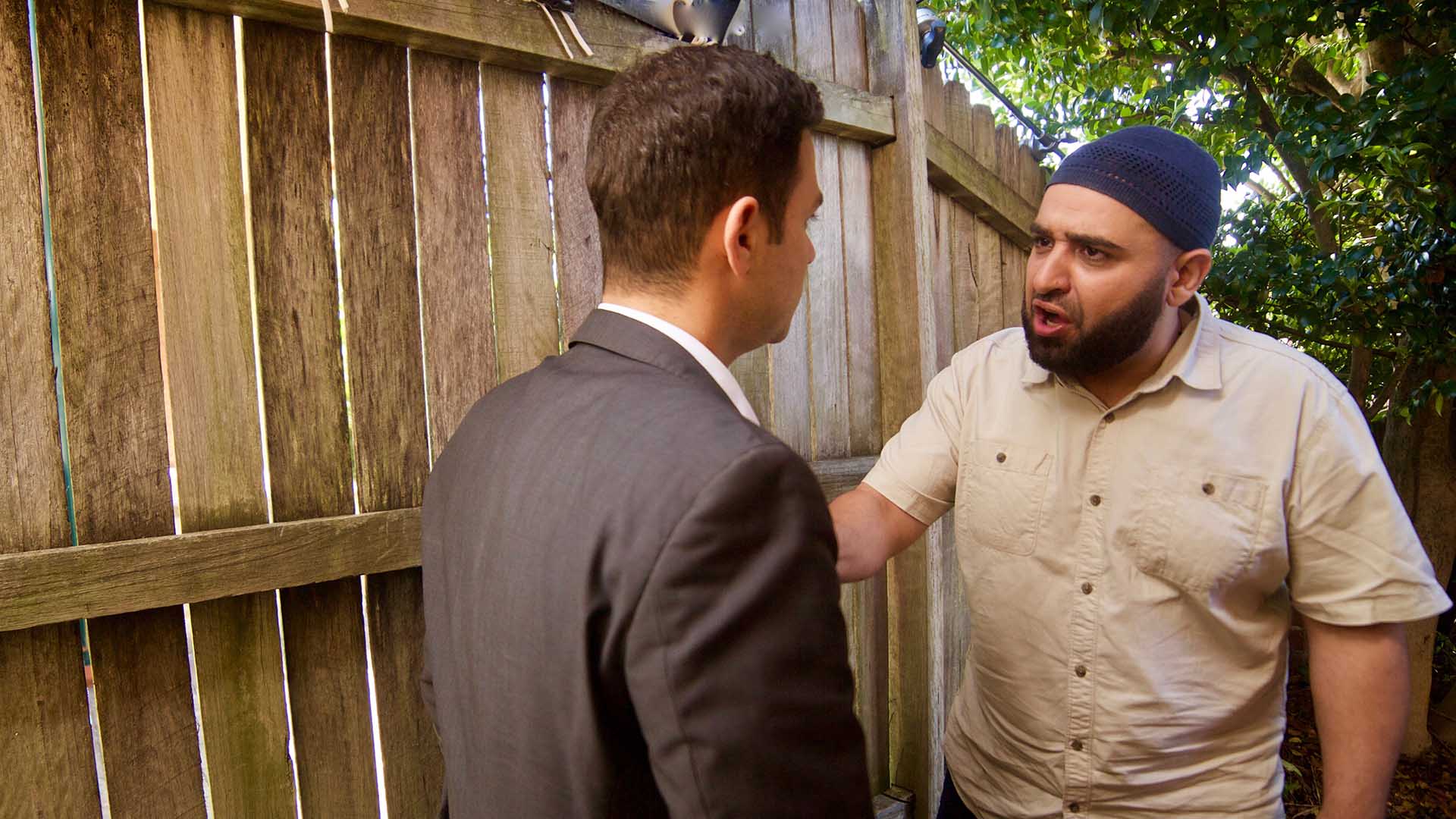The New Movies You Can Watch at Australian Cinemas From November 5
Head to the flicks to see a thoughtful biopic, a frenetic martial arts film and an important doco about the women's liberation movement in Australia.
Something delightful is happening in cinemas across the country. After months spent empty, with projectors silent, theatres bare and the smell of popcorn fading, Australian picture palaces are starting to reopen — spanning both big chains and smaller independent sites in Sydney and Brisbane (and, until the newly reinstated stay-at-home orders, Melbourne as well).
During COVID-19 lockdowns, no one was short on things to watch, of course. In fact, you probably feel like you've streamed every movie ever made over the past three months, including new releases, comedies, music documentaries, Studio Ghibli's animated fare and Nicolas Cage-starring flicks. But, even if you've spent all your time of late glued to your small screen, we're betting you just can't wait to sit in a darkened room and soak up the splendour of the bigger version. Thankfully, plenty of new films are hitting cinemas so that you can do just that — and we've rounded up, watched and reviewed everything on offer this week.
RADIOACTIVE
Even without sourcing and quoting an exact number, it's obvious that an immense amount of people owe their lives to Marie and Pierre Curie's research on radioactivity. Without their work — Marie's passion project, which she reluctantly agreed to collaborate on with Pierre after they first crossed paths in Paris — cancer treatment would've likely been vastly different over the past century. The results for scores of cancer patients would've been as well. But the pair's discovery of two new elements, radium and polonium, also led to disturbing side effects and cataclysmic events that changed the course of history in other ways. Radioactive touches upon both, from life-saving oncology usage and the ability to conduct x-rays on World War I battlefields to the bombing of Hiroshima and Chernobyl's nuclear reactor meltdown. Via the inclusion of clips in a 50s hospital, in Japan, in the Ukraine and at a nuclear bomb test in Nevada in 1961, this becomes a far more thoughtful feature than its usual biopic trappings often indicate (and make no mistake, much of the script reads from the biopic-101 playbook).
It might seem strange for a film about Marie to leap forward at different moments, jumping to years and decades past her death in 1934, all to show how the physicist and chemist's work made and continues to make a colossal impact upon the world. But that's the most interesting thing about Radioactive: its willingness to contemplate both the significant benefits and proven dangers of Marie (Rosamund Pike, an Oscar-nominee for Gone Girl) and Pierre's (Sam Riley, Rebecca) pioneering discoveries. The latter is tasked with vocalising this battle in his acceptance speech for their shared 1903 Nobel Prize in physics, acknowledging the struggle but opining that "mankind will derive more good than harm". As directed by Marjane Satrapi (Persepolis) and adapted from Lauren Redniss' graphic novel about the Curies, Radioactive film doesn't simply take Pierre at his word, however. It shows his radiation sickness, and Marie's. It touches upon the backlash when news of radioactivity's health effects started becoming widely known. And those aforementioned flash-forwards to both positive and negative applications of the Curies' research keep the same conversation going, because Radioactive doesn't try to offer a right or wrong answer. Something can be two things at once, after all, as this often-probing movie shows in a variety of ways.
Read our full review.

BRAZEN HUSSIES
Chatting to activists involved in Australia's women's liberation movement during the 60s and 70s, Brazen Hussies doesn't lack in witty and wise ladies making pivotal points. But it's filmmaker Margot Nash (The Silences) who offers one of this documentary's most telling observations, and the one that crystallises exactly why this movie had to be made. "History has to be told over and over again," she advises. She's a talking head in the film, rather than the writer or director behind it — those roles fall to first-timer Catherine Dwyer — but she couldn't encapsulate Brazen Hussies' purpose any better if she was the doco's driving force. As the feature explains, it's easy for people to overlook this chapter of history, and the fact that it all happened so recently. It's easy to forget that women's lives were drastically different, as was the way they were regarded by the world around them.
Brazen Hussies surveys pay inequality, legal abortion, funding for childcare, the way both queer women and Indigenous Australian women are treated, society's abhorrence of female sexuality and the first Advisor on Women's Affairs to a head of government anywhere in the world — plus everything from tackling domestic violence and the victim-blaming that can go along with it, to the simple struggle to survive that single mothers faced as well. But this happens in tandem with a historical recounting of Australia's actual fight for women's liberation, with Dwyer inspired by working on 2014 documentary She's Beautiful When She's Angry (which did the same from a US perspective). She examines what drove the more than 25 women she counts among her eponymous group to act and what they achieved, of course. At every moment, however, she's just as interested in how they battled for that change. Having access to a treasure trove of materials helps considerably in this engaging, informative and impassioned film. If the doco's talking-head lineup is impressive, it's bested only by the immense range of archival images and footage that Dwyer and editor Rosie Jones (director of The Family) splice together. With the rest of the filmmaking team, the pair sifted through more than 4000 photographs, journals, artworks and posters, and 800-plus news clips, documentaries and dramatic movies — and, unsurprisingly, Brazen Hussies is all the more detailed for it.
Read our full review.

A LION RETURNS
Following the clandestine return of a radicalised Muslim man to Sydney to see his dying mother, A Lion Returns is a film about extreme actions and the consequences they bring. And yet, as written and directed by Serhat Caradee — marking his second feature after 2009's Cedar Boys — it's a movie driven primarily by talk about those actions. Indeed, its opening third takes place in a car outside the Alamein family residence, where brothers Omar (Danny Elacci, Trust) and Jamal (Tyler De Nawi, On the Ropes) reunite in secret while their relatives gather inside. Before academic Omar can work out how to usher Jamal inside without anyone else seeing, especially their father Yusef (Taffy Hany, East West 101) who is likely to call the police, the siblings discuss everything that has led them to this juncture. Omar outlines the grim health predicament their ailing mother Manal (Helen Chebatte, Alex & Eve) faces, with hospice her next step. He also demands answers from Jamal about why he left his own wife (Jacqui Purvis, Neighbours) and young son to fight in Syria, makes his brother explain exactly what he did during his time with the Islamic State and tries to ascertain what he hopes to achieve by making a comeback.
A Lion Returns is so dialogue-heavy — and so driven by two- and three-way conversations about bonds of family, faith, the lengths one will go to for both and the repercussions that follow — that it could've easily graced the stage instead of the big screen. But there's an intimacy to this independent, low-budget, shot-in-ten-days Australian drama about ripped-from-the-headline matters that's cinematic. Set in an ordinary vehicle and a just-as-standard suburban home, and unfurling in real time, its visuals mightn't provide an overt spectacle; however, the connection that Caradee evokes with his complicated characters, and with the complex ideas and themes they discuss and sift through, benefits from the film's ability to get literally close to the animated chatter happening within its frames. This is a feature that makes every move possible to place its audience in the heat of the moment with its arguing family members, to share their tension and to confront the same thorny issues with them, and does so with precision. There are few surprises, narrative-wise, as not only Jamal's abandoned loved ones but the defector himself grapple with his choices and the shadows they've left overseas and at home, but A Lion Returns excavates a difficult situation with assurance and poise, as well as with passionate performances.

IP MAN: KUNG FU MASTER
It's unlikely that filmmakers will ever get sick of making movies about Ip Man, much in the same way that they never seem to tire of bringing the likes of Sherlock Holmes and Dracula to the screen. Ip Man was a real person, though. A martial arts grandmaster in the kung fu style known as Wing Chun, his life spanned fascinating chapters in both mainland China and Hong Kong, including a stint with the police force and training Bruce Lee — and it has also spawned many a film over the past couple of decades as a result. Ip Man features in movies about Lee, naturally. He has been the driving force behind the Donnie Yen-starring Ip Man, Ip Man 2, Ip Man 3 and Ip Man 4: The Finale, too, and Wong Kar-wai's The Grandmaster as well. And, first in The Legend Is Born – Ip Man, then in Kung Fu League and now in Ip Man: Kung Fu Master, he has been played by wushu champion-turned-actor Dennis To (who actually had a minor role in Ip Man and Ip Man 2).
In Ip Man: Kung Fu Master, To steps into the famed figure's shoes during his law enforcement stint in Foshan. First, he's the subject of a revenge scheme by the daughter of a mobster who is killed in police custody despite Ip Man's best efforts to ensure otherwise. Then, he's targeted by the Japanese army as they make their presence known in the period between the first and second Sino-Japanese wars. Both elements of the story intertwine — as does the birth of Ip Man's first son, and his need to protect his family as multiple parties endeavour to hunt him down — but writer/director Li Liming is far more interested in the movie's frenetically choreographed martial arts scenes than its narrative. Indeed, anything that doesn't involve fighting often feels like filler. There's no doubting the impact of Ip Man: Kung Fu Master's balletic displays of flying fists, though, or how stylishly they're shot. They can't substantially lift a film that'll never be the go-to Ip Man movie, or even one of the best flicks about him either, but they're the standout elements of an otherwise average movie.
If you're wondering what else is currently screening in cinemas — or has been lately — check out our rundown of new films released in Australia on July 2, July 9, July 16, July 23 and July 30; August 6, August 13, August 20 and August 27; September 3, September 10, September 17 and September 24; and October 1, October 8, October 15, October 22 and October 29.
You can also read our full reviews of a heap of recent movies, such as The Personal History of David Copperfield, Waves, The King of Staten Island, Babyteeth, Deerskin, Peninsula, Tenet, Les Misérables, The New Mutants, Bill & Ted Face the Music, The Translators, An American Pickle. The High Note, On the Rocks, The Trial of the Chicago 7, Antebellum, Miss Juneteenth, Savage, I Am Greta, Rebecca, Kajillionaire, Baby Done, Corpus Christi, Never Rarely Sometimes Always and The Craft: Legacy.
Top image: A Lion Returns via Bonafide Pictures.







